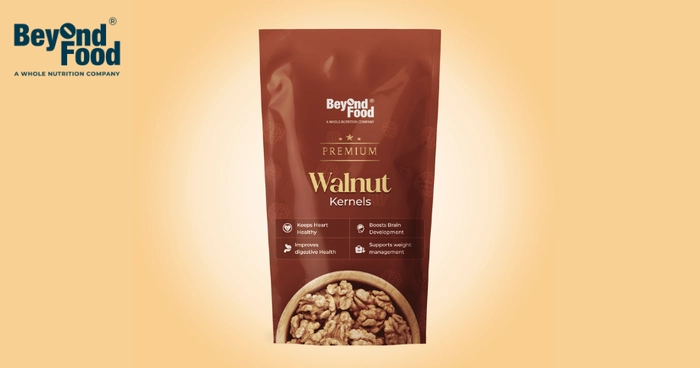Crunchy Goodness: Exploring the World of Peanut Butter Snacks
Peanut Butter: The Versatile Superfood Loved by All! Peanut butter is a favorite in many households, known for its versatility

Walnuts are often hailed as a “superfood,” and rightfully so. These small, brain-shaped nuts are packed with nutrients that can significantly enhance your health. Rich in antioxidants, healthy fats, vitamins, and minerals, walnuts provide a robust nutritional profile that supports various aspects of your well-being. Whether you are aiming to bolster your heart health, boost brain function, or simply incorporate more nutritious foods into your diet, walnuts and dry fruits stand out as an excellent choice. In this blog, we will delve into the myriad advantages of walnuts and offer guidance on how to maximize these benefits through consumption. Discover how integrating this versatile nut, along with other dry fruits, into your daily meals can lead to substantial health improvements and an overall better quality of life.
Before diving into the specific benefits, let’s take a look at what makes walnuts so nutritious. A single ounce (about 28 grams) of walnuts contains:
Walnuts are also rich in antioxidants and omega-3 fatty acids, which contribute to their health-boosting properties.
1. Heart Health
One of the most well-documented benefits of walnuts is their positive impact on heart health. The elevated levels of omega-3 fatty acids, especially alpha-linolenic acid (ALA), help reduce inflammation and improve cholesterol levels. Research has suggested that regular consumption of walnuts may lead to a reduction in LDL (bad) cholesterol and an increase in HDL (good) cholesterol. This, consequently, decreases the likelihood of cardiovascular conditions like heart attack and stroke. Incorporating walnuts and other dry fruits into your diet can further enhance heart health and contribute to overall well-being.
2. Brain Function
Walnuts are often touted as brain food, and there is scientific evidence to support this claim. The polyunsaturated fats, polyphenolic compounds, and vitamin E found in walnuts help shield the brain from oxidative stress and inflammation. Frequent intake of walnuts has been associated with enhanced cognitive function, better memory, and a reduced risk of neurodegenerative diseases like Alzheimer’s.
3. Weight Management
Despite being calorie-dense, walnuts can be a valuable addition to a weight management plan. The blend of protein, fiber, and nutritious fats in walnuts and dry fruits helps promote satiety, reducing overall calorie intake. Additionally, the energy expenditure to digest and metabolize walnuts may be higher than for other foods, further aiding in weight control.
4. Cancer Prevention
Walnuts contain several bioactive compounds that have been shown to have anti-cancer properties. These include ellagic acid, tannins, and melatonin. Research suggests that walnuts may help lower the likelihood of specific cancers, such as breast, prostate, and colorectal cancers. The antioxidants in walnuts help neutralize free radicals, which otherwise have the potential to harm cells and contribute to the development of cancer.
5. Bone Health
Walnuts are a good source of minerals essential for bone health, such as phosphorus, magnesium, and manganese. These minerals aid in preserving bone density and strength, lessening the chance of osteoporosis and fractures as you get older. Incorporating walnuts into your diet may positively impact bone health as time progresses.
While walnuts are incredibly nutritious, they must be consumed in moderation due to their high-calorie content. The recommended daily intake of walnuts is about 1 ounce, which is approximately 14 walnut halves. This amount provides a good balance of nutrients without excessive calorie intake.
Walnuts are versatile and nourishing ingredients that can provide a plethora of health advantages when incorporated into a well-rounded diet. From promoting heart health and enhancing brain function to assisting in weight control and potentially lowering the risk of cancer, the advantages of walnuts are substantial. However, due to their high-calorie content, it’s essential to consume them in moderation. By incorporating about an ounce of walnuts into your daily diet, you can enjoy their health-boosting properties while maintaining a balanced intake of calories. In summary, the advantages of walnuts and dry fruits are not just a tasty snack but a powerhouse of nutrition that can support your overall well-being. By incorporating walnuts into your diet on a regular basis, you can harness their multitude of health benefits and enhance your nutritional intake. So, go ahead and make walnuts a staple in your meals, whether it’s adding them to salads, baking them into treats, or simply enjoying them as a satisfying snack. With their delicious flavor and impressive nutrient profile, walnuts are a delicious and convenient way to nourish your body and promote optimal health.
Peanut Butter: The Versatile Superfood Loved by All! Peanut butter is a favorite in many households, known for its versatility
We’ve all been there—starting the day full of energy, only to hit that dreaded mid-afternoon wall. Suddenly, staying focused feels
As a runner, you know that fueling your body correctly is essential for peak performance. Whether you’re gearing up for
In the pursuit of a healthier lifestyle, especially when aiming to achieve weight loss goals, people often navigate a myriad
In today’s fast-paced world, finding time to prepare nutritious meals can be challenging. Whether you follow a specific diet or
Muesli is a nutritious and versatile breakfast option that can be enjoyed in many different ways. This guide will take

At Beyond Food, our mission is to deliver whole nutrition through our snacks, breakfast options and meal replacements. Each whole nutrition product is carefully crafted with a balanced mix of protein, carbs, and fats to keep you fuller for longer and truly satisfied—without blood sugar spikes or bloating.